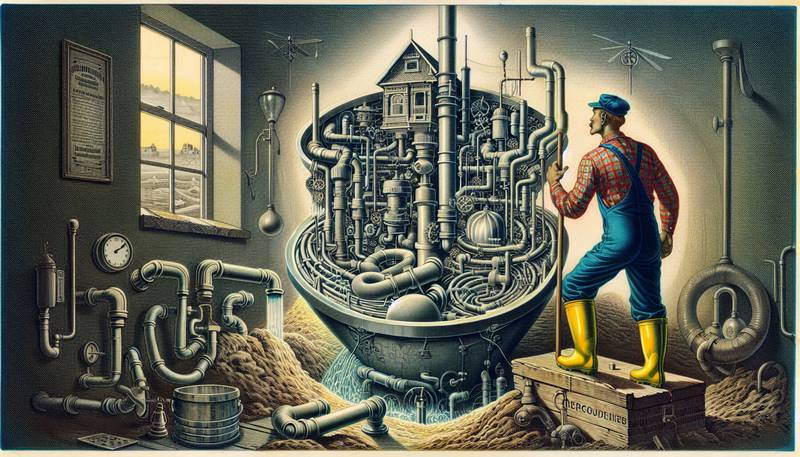Septic System Maintenance: Expert Plumbing Techniques

Strap On Your Rubber Boots: It's Septic Time!Septic systems: the unsung heroes of modern plumbing. These magnificent contraptions work tirelessly to transport and treat the delightful byproducts of our daily lives, bravely venturing where no human (or most, at least) would dare to go. Septic systems are like the digestive systems of our homes, silently converting waste into something less offensive. They're the Rodney Dangerfield of home infrastructure: they don't get no respect.But, alas, our trusty septic systems can't go it alone. They need our help in the form of regular maintenance, and that's where expert plumbing techniques come to the rescue. I promise you, dear reader, that by the end of this article, you'll be more excited about septic system maintenance than a plumber at a pipe fitting convention.First Things First: Getting to Know Your Septic SystemTo properly maintain your septic system, you must first understand how it works. And, much like a fine wine or a complex cheese, a septic system has many layers and notes. The most common type of septic system is the tried-and-true gravity system. This beauty consists of a septic tank and a drain field, connected by a series of pipes and baffles.Wastewater from your home flows into the septic tank, where the magic happens. Solids settle to the bottom, forming a lovely layer of sludge, while fats and oils rise to the top, creating a picturesque layer of scum. In between these two layers, a clear layer of wastewater (or "effluent") forms. This effluent is then gradually released into the drain field, where it is treated by the soil and returned to the groundwater.It's a beautiful cycle, really. One might even call it poetic, if one were so inclined.The Importance of Regular PumpingNow, I know what you're thinking: "Bill, this all sounds fantastic, but what can I do to help my septic system thrive?" Well, my friend, the answer is simple: pump it up! Just like a rock star, a septic system needs a little TLC in the form of regular pumping.Over time, the sludge and scum layers in your septic tank grow, reducing the space for effluent and increasing the risk of solids escaping into the drain field. This can lead to clogs, nasty odors, and even total system failure. And let me tell you, a failed septic system is about as pleasant as a root canal performed by a blindfolded chimpanzee.So, how often should you pump your septic tank? The general rule of thumb is every 3 to 5 years, but this can vary based on factors such as the size of your tank and the number of people in your household. When in doubt, consult a septic professional for guidance (and perhaps a friendly chat about all things septic).Expert Plumbing Techniques: Beyond PumpingWhile regular pumping is essential, there are other expert plumbing techniques you can employ to keep your septic system in tip-top shape. Here are a few of my personal favorites:- Be water-wise: Conserving water can reduce the strain on your septic system, as it allows for more efficient treatment of wastewater. Simple changes like fixing leaks, installing low-flow fixtures, and spreading out laundry loads can make a big difference.
- Think before you flush: Your septic system is not a trash can. Items like diapers, wipes, cigarette butts, and kitty litter should never be flushed, as they can clog pipes and interfere with the treatment process. Your septic system has enough on its plate without having to deal with these unwelcome guests.
- Maintain your drain field: The drain field plays a crucial role in treating wastewater, so treat it with the respect it deserves. Keep trees and shrubs at least 20 feet away, as their roots can damage pipes. Don't drive or park heavy vehicles on the drain field, as this can compact the soil and reduce treatment efficiency. And, above all, never ever use your drain field as a slip 'n slide. Trust me, it doesn't end well.
A Septic System Love StorySo there you have it, dear reader. With a little knowledge, some expert plumbing techniques, and a healthy dose of respect for the work your septic system does, you too can embark on a lifelong love affair with your home's unsung hero. And who knows? Maybe one day, you'll find yourself waxing poetic about the joys of septic system maintenance. Stranger things have happened.
|
|







